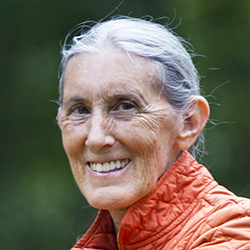
The practice of purity leads to fitness for God Realization.—Sutra 2.41
Normally this sutra is associated with disgust for the body, which is also cited in Sutra No. 2.40 and as such is not a favorite practice. However, in actual practice saucha is the effort of keeping our self and surroundings clean and in order. It is one of those practices which Gurudev would tease us about: “Elementary but elephantary.”
When Gurudev came to America he found himself surrounded by hoards of eager students, but most of us were in the throes of throwing off the social strictures which we found empty and hypocritical. Cleanliness was not one of our priorities. He took us on as a serious project. “Your parents should have taught you these things!” He exclaimed once. Then He said, “This must be my karma. It’s not that cleanliness is next to godliness, cleanliness is godliness!” and he was exacting with us. We were scrutinized whenever we worked alongside him.
We begged him to attend our meditations and infuse his spirit into us. He would not. He said, “I’m always with you, and I know how you meditate by how you work.” He trained us towards the alert relaxedness necessary for meditation. When we hit the mark, we were present, had foresight and cleverness, saw and attended to the details, maintained pleasantness in our interactions, and were relaxed but efficient. That was a grace when it happened. He modeled it, and we strove for it. One of the markers or barometers for how conscious we are is how we affect our environment. When we walked through a room, did we leave it a bit more beautiful, or a bit more in chaos? Did we manage to whisper our mantra to ourselves even once? All the markers were there for him, clear as day. Did we check to see if the pen worked before we handed it to him? Did we wipe the rim of the coffee container before recapping it? He loved His world, because he had the eyes to see the world in its sacred beauty. He wanted us to slow down, open up, and begin to see it also. “Treat every leaf of spinach as the body of the Buddha, and it becomes the Buddha for you.” It’s not how fast we worked, but how much caring we put into each action.
I think some of His teachings were imparted on a time-release basis, for this one is taking root in me ten years after he has left his body. With my new lifestyle of an itinerant monk, schleping my belongings from place to place, saucha has become of paramount importance (the necessity of keeping things organized so I can locate what I need) and has revealed itself to be a direct and effective path for mental freedom. I never dreamed it would be so powerful.
Seeing Saucha in Action
The following visit to a very poor family in India propelled my interest in saucha. The family worked on the tea estates in Coonoor, one of the hill stations in the mountains above Coimbatore. The estate owners had built a little colony of concrete homes for their laborers. Each family had one simple room—maybe 12 by 12—and there were shared bathrooms in a separate block. I think there were four in this family. Kids and chickens and kittens were playing in the doorway when we entered. The Indian sun brightens the colors; it’s a country in which people thrive on deep hues of color and intricate design. We stepped into the welcome shade of their home and a lovely smiling lady served us tea full of gracious warmth. The family belongings were neatly folded on a few shelves. A few canisters of kitchen supplies sat above her one-burner propane stove. That was all. I cannot forget this lady’s face. She glowed with health and happiness, her smile was gorgeous, and she was so pleased to have a foreign visitor. Absolutely without a speck of shame for her simple home, she received us. A neighbor brought in a couple of folding chairs and she served us tea. When we left, she gave me a small single stem of bright geraniums. That she in her poverty managed to find a gift for me is something I will never forget.
There were many other times as well when I went to the home of one of our brainy, educated, well-dressed, competent young sangha members, and discovered that he or she lived in two rooms with their family and had just a couple shelves for all his or her belongings.
It opened my eyes. I came back to America with shame for our lifestyle. What a fruitless pursuit it is to invest ourselves in possessions to secure our happiness. It seems to be a process that snowballs—the more we possess, the more empty we feel and so we redouble our efforts and try to acquire more. It is a myth that wealth equals happiness and I think we’re starting to find out how erroneous it is.
In a way it’s not our fault. Our economy depends on our addiction to shopping, and the geniuses in the advertising world have figured out the inside paths to our psyche. Who could blame us? At this point, 75% of the possessions in an American home are not being used. WHAT YOU OWN, OWNS YOU.
Everything we own requires maintenance—dusting at the very minimum. Ownership involves being the caretaker. Somehow our subtle energy circuits include all our belongings. Like an extended body, the sense of “ME” is as large as all we own.
Back to my story, I sort of entered this discipline of saucha through the back door. I approached it for practical, not spiritual reasons. I had to simplify to be able to manage my belongings, and I had to give more time and attention to keeping them in order. Gradually I came to realize how much my office/bedroom reflects my mind and also how much it affects my mind. Now, whenever I’m off-balance or overwhelmed, I tackle my personal space, clean it up, and put it in order. It never fails to ground me; it acts as a kind-of reset button.
Now here’s the key: if you want to keep an orderly, clean environment, it is easier with fewer items. I started by throwing out some unfinished projects. What a revelation! It was as if I was actually inside my mind—that same mind that is so cluttered and distracted during meditations. It was like I could go in there and physically clear away the distractions. I used techniques I found in a book, Clutter Busting by Brooks Palmer. His main point is to identify how each possession makes you feel.
Walk through your house and ask yourself these questions:
- If my home were a store, would I consider buying what I currently own?
- If my home were a refrigerator, which items have passed the expiration date?
- Are you keeping this item just because it was expensive? (Or because it was so cheap? Can I show this to someone without mentioning the price I paid?)
- If I had to make an emergency move, what would I save?
At first I had a hard time identifying what is clutter and what is essential. So I would box up everything that was probably clutter and stash it out of sight. At the end of six months, I was usually ready to let go of it. It’s a sly way of easing things out of the grasp of the greedy mind. Then the process gets addictive. When you discover how transformative it is, you get eagle-eyed for any way you can simplify. Even belongings that were expensive or took a lot of effort to acquire, I cannot tell you the unique delight and lightness I have felt when I transferred them into the care of the GoodWill store. Projects that I once cherished have been plopped into the trashcan, and the clang of the lid, shutting them out of my life forever, is sweet music. My life and room have breathing space.
Sri Swami Satchidanandaji was meticulous. He moved through the same world as we do but his world was mysteriously different. He saw more, He cared more, He was more careful, He was attentive to the insignificant detail. It was all sacred to him and full of a blessed beauty. He was never in a careless hurry. He folded His dirty clothes carefully. He was in love with His world. There was always synchronicity around Him, nature returning His love.
We longed to be near Him. We longed to become like Him, and always live in that magic. Seeing that longing He responded by training us. He was exacting. Each moment mattered and every action mattered. How we closed a door, or how we moved a chair.
When we prepared a room for his visits, we dusted every light bulb, removed every bent coat hanger, and wiped every floorboard and door jamb. Even before he arrived, the rooms prepared for him would have this amazing vibration: perfection awaiting Perfection. Now that he has left his body, the thing that most reliably brings his presence back to me is a totally, exquisitely clean, well-ordered environment.
I set up a lot of rooms for Swamiji and sometimes my materials were pretty basic, especially in India. But it didn’t matter to Him, as long as we had thoughtfully prepared the space and had taken the time to make it sparkling clean. Now I ask myself, how would I prepare my bedroom if He were coming to stay? It’s amazing how much you can do with what you have. But the main outcome of that question is to simplify. With simplicity comes elegance and mental space.

